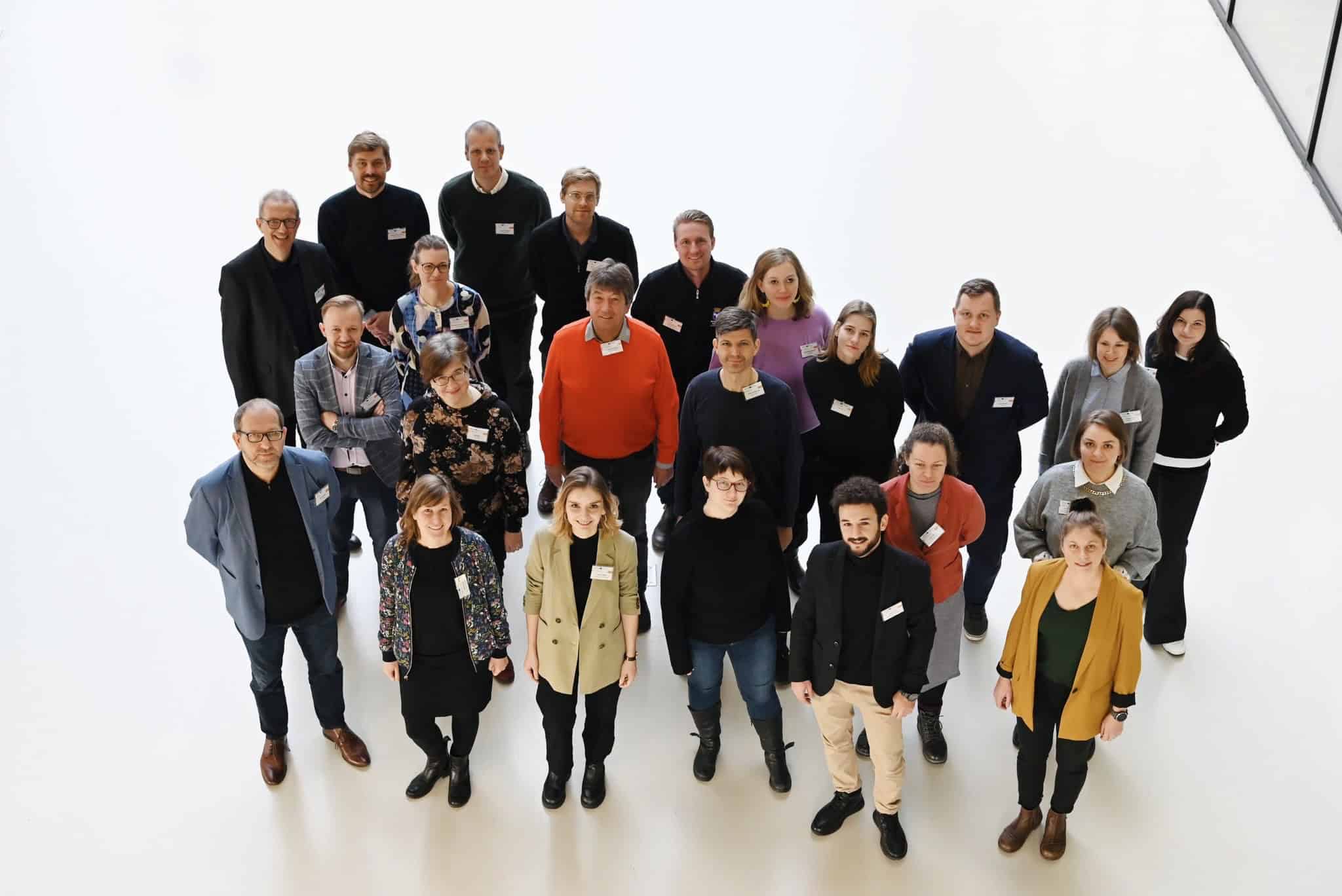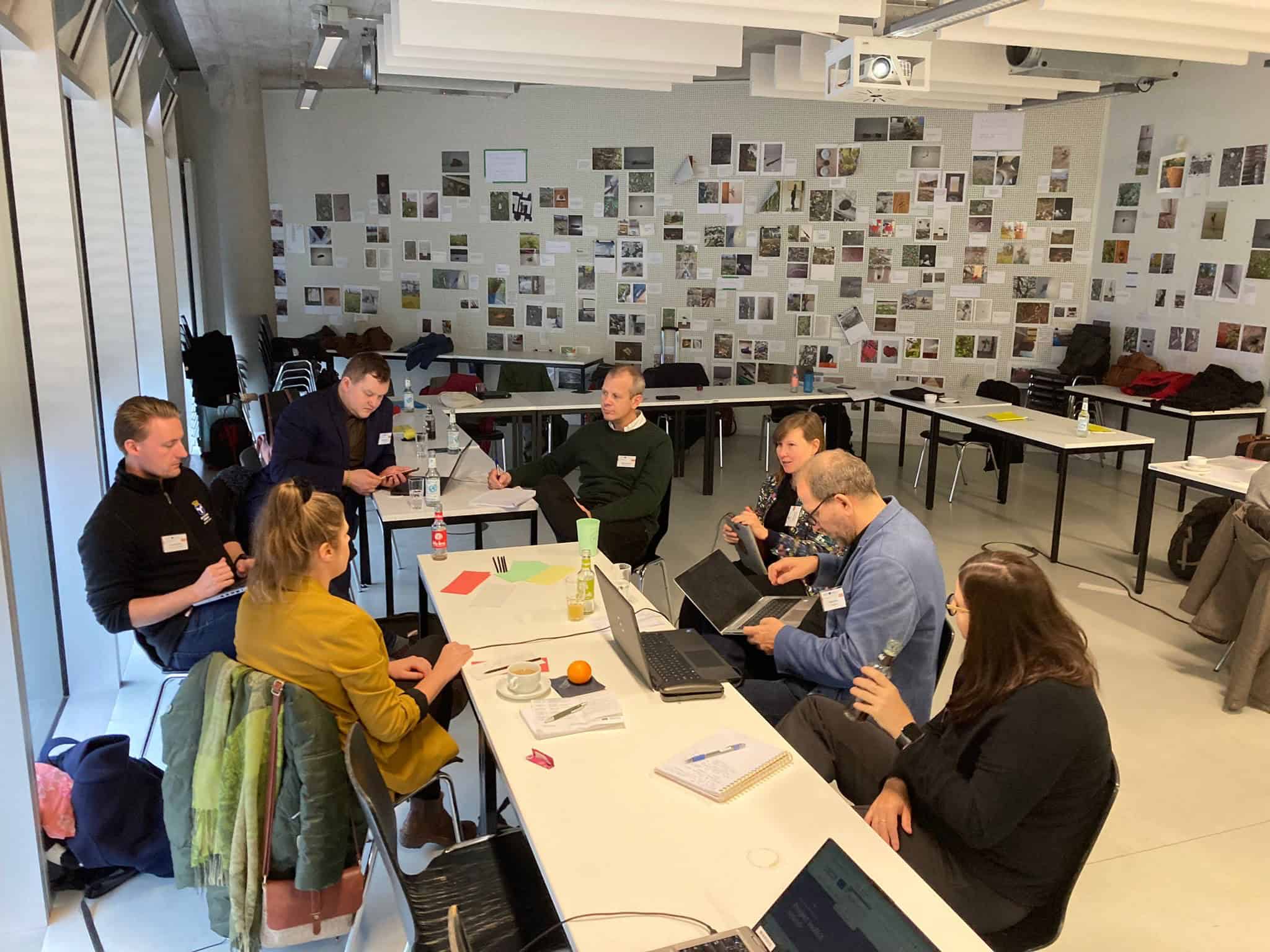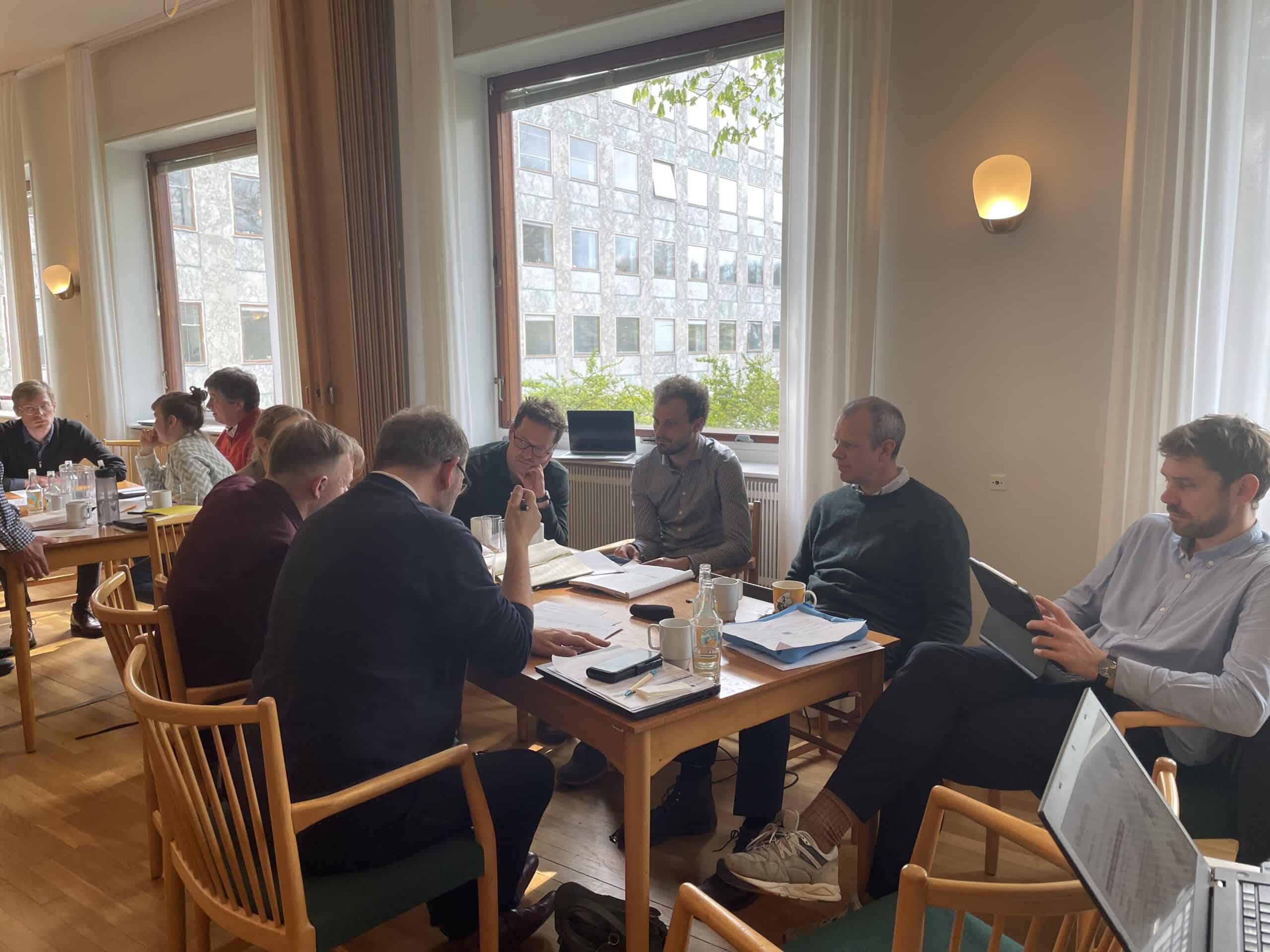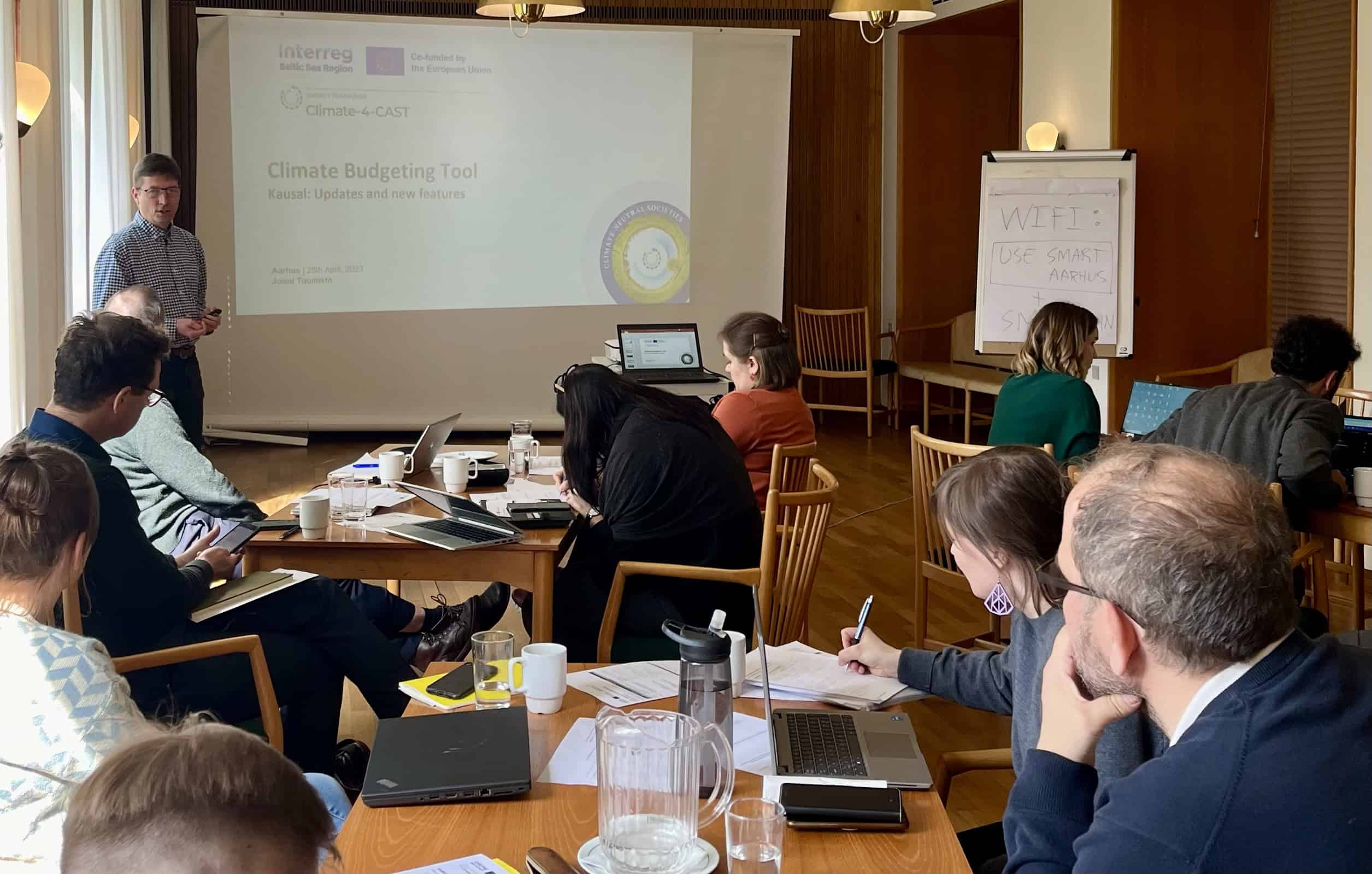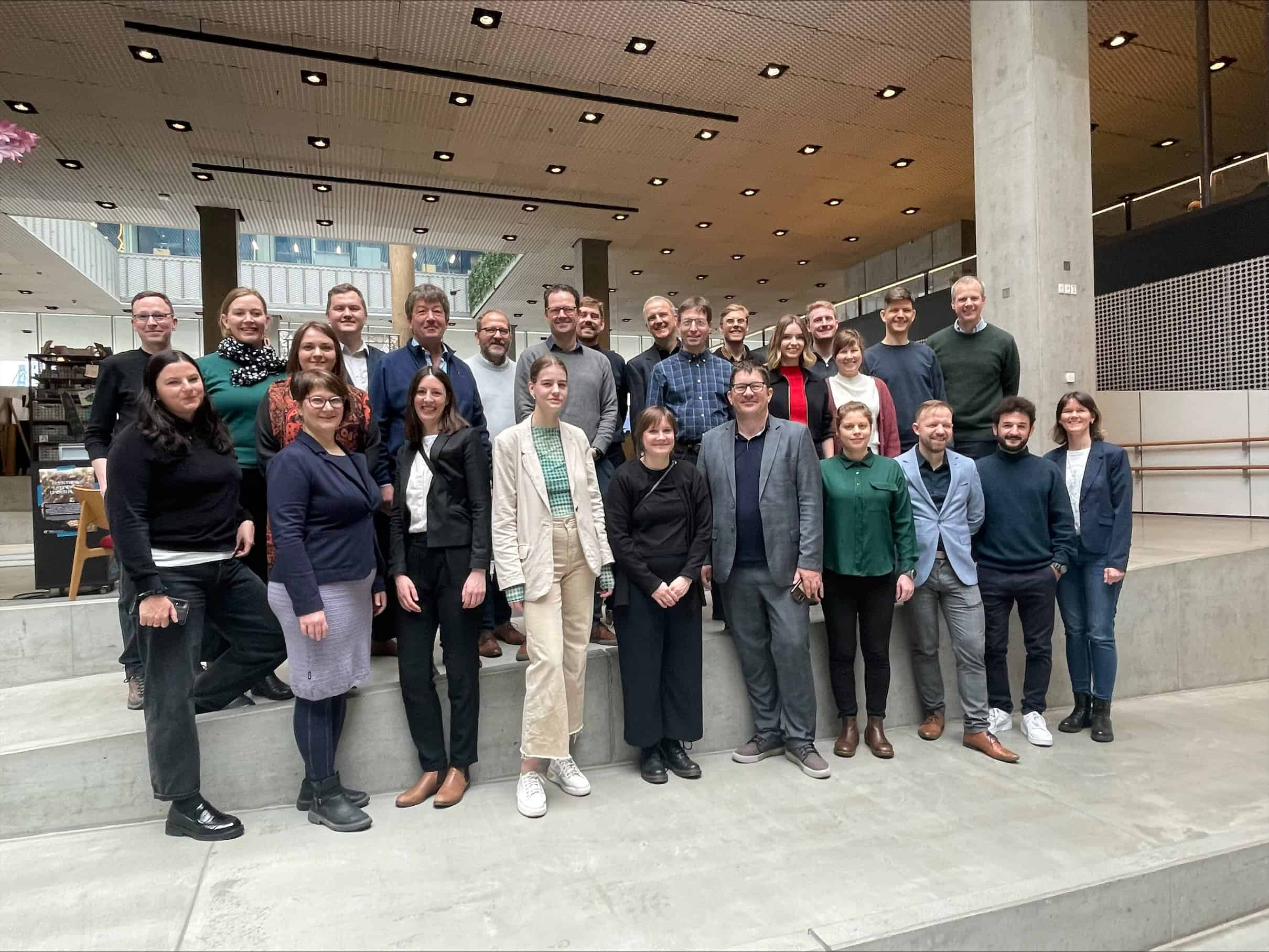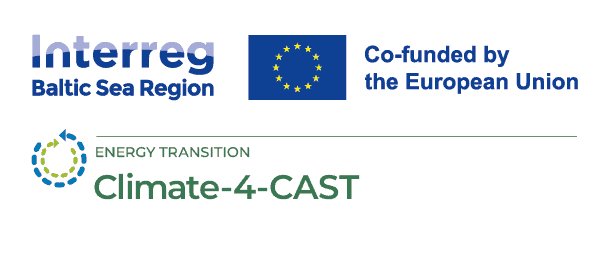
Climate-4-CAST’s Milestone Achievement: Advancing from Pilot Planning to Pilot Implementation and Evaluation
26 June 2024
The Climate-4-CAST project is a collaborative effort aimed at empowering local public authorities to take effective climate action and achieve climate neutrality. By providing an innovative Climate Action Decision Support Tool with an operationalisation framework for governance integration the project facilitates better planning, budgeting, and monitoring of climate measures in cities around the Baltic Sea Region. In May 2024 the project achieved a significant milestone, as the first project phase, WP1 – Preparing solutions, was accomplished and the project transitioned to its next project phase, WP2 – Piloting and Evaluating the solutions. In this article we summarise few of the key achievements during the first six months of the project.
Establishing Transnational Cooperation
The Climate-4-CAST project, spanning across the Baltic Sea Region, brings together 10 project partners and 14 associated organisations. During the first phase of the project, their collaborative efforts have focused on:
- Co-designing the schematic for the Climate Action Decision Support Tool,
- Developing an operationalisation framework for tool implementation in local governance frameworks, and,
- Preparing and co-developing the local pilot action plans.
The journey began in November 2023 with a kick-off meeting in Hamburg, Germany, where partners and pilot cities discussed their local climate plans and governance contexts. Workshops followed, addressing the tool-design development and climate governance mapping. In March 2024, a two-day tool co-design workshop further improved the decision support tool schematic. Here collaboration was started with the associated organisations for the first time. Finally, in April, project partners met in Aarhus, Denmark, to discuss the finalisation of the tool’s design schematic and operationalisation framework, and to share insights on local piloting and action plan preparation.
Climate Action Decision Support Tool Schematic
In May 2024 the first project deliverable was finalised and published, describing the tool design schematic for the Climate Action Decision Support Tool. The deliverable describes the key features, objectives, target audiences and user groups of the tool, addressing also issues of data requirements and limitations, and scope of calculations. The deliverable is mostly for project internal use, preparing the 6 pilot cities of Climate-4-CAST for the tool implementation in the next project phase. Afterwards the tool design schematic will be improved based on the knowledge gained and lessons learned from the city pilots.
The Climate Action Decision Support Tool is mainly targeted for city’s internal use and planning, key target audiences being the city planners and administrators and the core decision-making bodies within the cities. The tool is based on two main features:
- An overview of climate actions and their individual climate and economic impacts. This feature helps cities analyse the effectiveness of climate measures, prioritise climate actions and understand in-depth the various impacts of climate actions.
- Visualisation of city-level emissions projections. The feature helps cities to follow and project the achievement of their climate neutrality goals and emissions targets, and how individual climate actions contribute to the achievement of emissions targets.
The deliverable can be accessed through the following link: Deliverable 1.1 – Tool Design Schematic for financial aspects’ integration
First Version of the Open-Source Tool Code Package
During the first project months, project partners from Kausal, developed the first version of the software code required to implement the Climate Action Decision Support Tool, working collaboratively with pilot cities and associated organizations. The open-source code package, available via GitHub and published under an AGPL-3.0 license, contains two software components: first, a backend component, in which the calculation model is implemented, and datasets are imported and managed; and second, a user interface component, which allows users to explore the calculation model in graphical form, and visualize model results.
The code package contains instructions for setting up the Decision Support Tool on a user’s local workstation; in addition, city IT staff may use the package to deploy the tool on a city’s server infrastructure. However, Kausal will continue to host the Decision Support Tool for pilot cities and associated organizations, making the tool available as an online service; cities may access the tool via a web browser, with no tool installation required. Cities will continue sending data to Kausal, via the Excel-based data entry workbook, for import to the city’s online Decision Support Tool. For further details, users may refer to the tool’s online user guide.
Operationalisation Framework and Local Pilot Action Plans
To support and facilitate the piloting of the Climate Action Decision Support Tool in the partner cities’ local contexts, HCU developed an operationalisation framework in close collaboration with the partners. It serves as a guide for the 1st tool piloting and consist of two main parts:
- Overarching guidelines for piloting, including 10 key governance factors that provide long-term orientation for all cities to promote the implementation of a climate budget, involving existing local structures and starting conditions, political and legal frameworks, but also setting a common goal and leadership.
- The city-specific Action Plans serving as a concrete roadmap on how to implement the tool as a pilot under local conditions, including general requirements of the pilots and data collection methods, long-term and short-term goals, concrete measures for the pilot, involvement of key actors, stakeholders and user groups, and ultimately leading to a concrete timeline of pilot implementation.
The operationalisation framework and local pilot Action Plans are outlined in a project deliverable, which acts as a guide for conducting the pilot activities until October 2024, and as a basis for the upcoming co-evaluation in Autumn 2024. Although it is primarily aimed at the cities and partners, and therefore an internal document, an external version of the deliverable including the Action Plan template (questionnaire) can be accessed through the following link: Deliverable 1.3 – Co-developed Action Plans for the pilot cities
Next steps: Piloting the Climate Action Decision Support Tool
After six months of active work and collaboration around the development of the first versions for the Climate Action Decision Support Tool and its operationalisation and governance frameworks, the Climate-4-CAST project is finally ready for the second project phase – piloting solutions. During the next phase the tool will be tested and integrated in governance processes within 6 pilot cities around the Baltic Sea Region, Aarhus (DK), Bytom (PL), Norderstedt (DE), Riga (LV), Tampere (FI) and Östersund (SE). Here we expect intensive local actions and deeper interregional collaboration around the tool development and shared experiences. Let’s keep the wheels turning!
Text: Hanna Meriläinen (City of Tampere), Esther Kreutz-Hassinen (Kausal Ltd.), Vanessa Kügler (HCU Hamburg)

